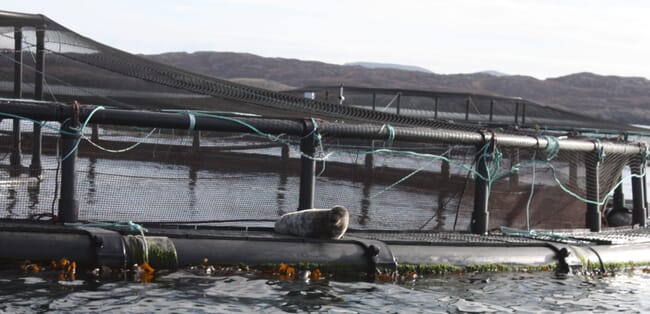
Over a million salmon smolt, in the 200-400 g range, were being help at the sites, at Cross Island, Machias Bay. It is thought that 50,000 of these – making up 4.5 percent of the sites' fish – had escaped through two holes before they were spotted by divers.
“Divers inspected the nets to determine the seals’ point of entry. In accordance with farm management plans, the nets were confirmed to be properly tied, and that a second layer of predator netting was in place at both sites surrounding the primary netting,” said Cooke in a statement.
“The company is assessing how the seals gained access to the cages. There has been an increase in the seal population, and it’s believed this unusually aggressive seal behavior is a result of that change in Machias Bay. Divers noted that there were no fish around the cages, which suggests they were eaten by seals in the vicinity following the breach,” the company added.
Cooke Aquaculture said it is now assessing the entire site for other factors, ensuring all predator nets are tied, and increasing the number of dives at each site. The company is exploring enhanced netting options and safety measures on all remaining cages.



